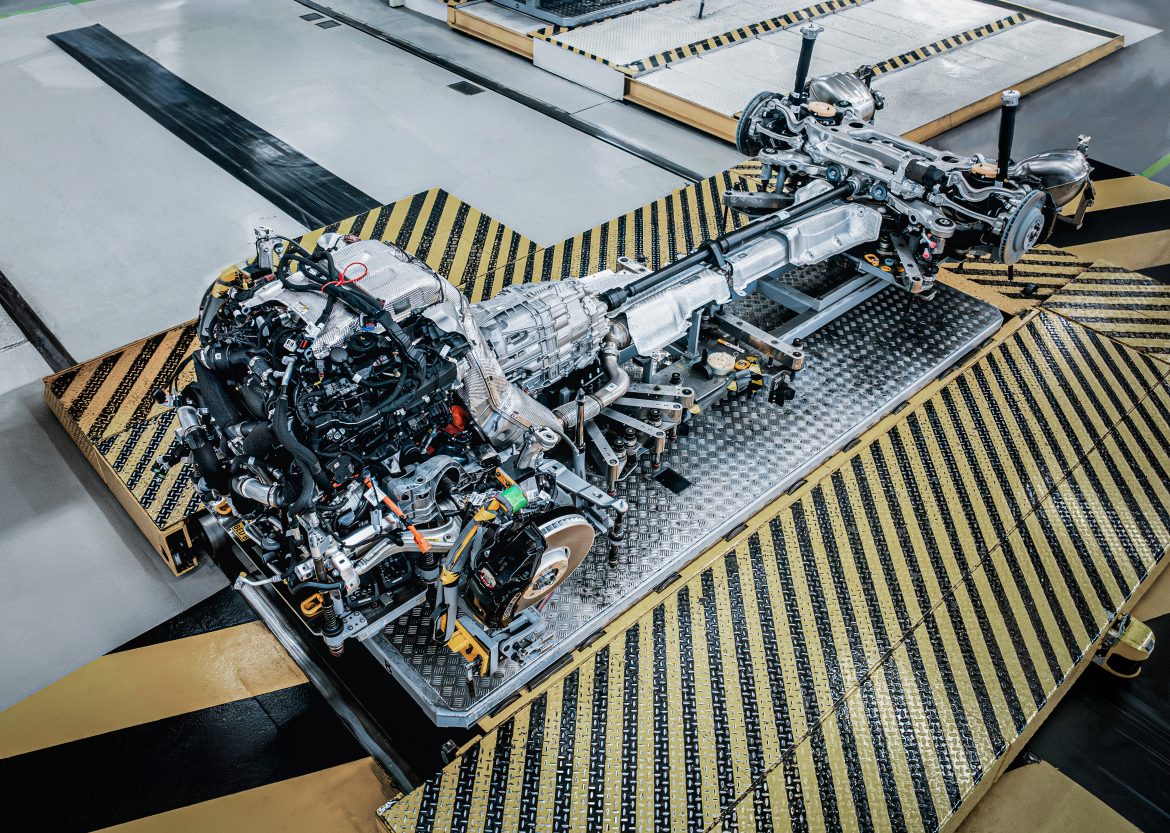The outgoing W12 engine has been a mainstay for Bentley for over two decades. While powerful, the engine also had limitations in terms of efficiency. The new Ultra Performance Hybrid aims to address this by combining a V8 petrol engine with an electric motor.
While specific details about the new engine are yet to be revealed, Bentley has confirmed that the combined output of the hybrid system will exceed 750PS, surpassing the W12 engine. Additionally, the torque figures are expected to be over 1,000 Newton metres, available across a wider rpm range compared to the W12 engine.
The Ultra Performance Hybrid will also boast an electric-only range of 80 km based on the WLTP cycle. This translates to reduced emissions and the ability to handle daily commutes without relying on fuel combustion. Bentley describes the Ultra Performance Hybrid as a “performance-focused” and “most efficient” powertrain in the company’s history. This new offering will be placed in a lineup of Bentley’s upcoming “daily supercars”.
The shift towards electrification is not entirely new for Bentley. The company already offers a 2.9-liter V6 hybrid option in the Flying Spur. However, the Ultra Performance Hybrid promises a significant boost in power and performance.
Bentley’s original plan for complete electrification by 2030 has been revised. The new target for offering only electric vehicles is set for 2033, following the downward growth of the EV industry across the globe. The first Bentley electric vehicle is also delayed by a year and is now expected to be revealed in late 2026.
This move towards electrification reflects a wider trend within the Volkswagen Group, Bentley’s parent company. Similar transitions are underway at Audi and Lamborghini, with a shift from large displacement engines towards hybrid and electric options. Bugatti, another brand under the Volkswagen Group umbrella, will also be introducing a hybrid V16 engine in its upcoming hypercar.



